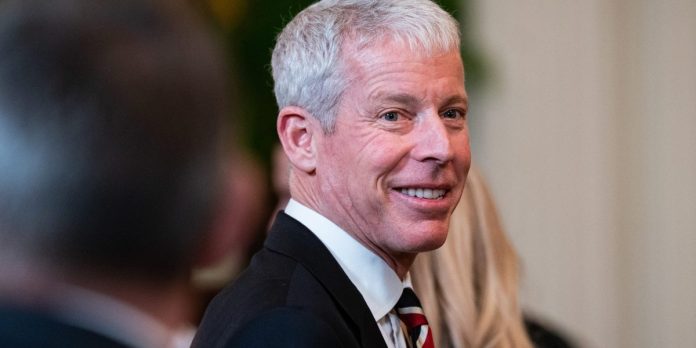Energy prices are expected to be lower under the current US administration compared to the previous one, as stated by US Energy Secretary Chris Wright.
“Under President Trump’s leadership in the next four years we’ll almost certainly see lower average energy prices than we saw in the last four years of the previous administration,” Wright said at a briefing with reporters in Riyadh. He refrained from specifying any particular price targets.
During Biden’s term, the US had conflicts with Saudi Arabia regarding energy policy, particularly in terms of increasing production and lowering prices to address inflation concerns that were unaddressed by the Saudi government. Crude oil prices averaged around $83 a barrel between 2017 and 2021, according to Bloomberg data.
“I can’t comment about where oil prices are today or where they’re going, but if you reduce barriers to investment, reduce barriers to build infrastructure, you can lower the supply costs of energy,” Wright stated.
Recent declines in oil prices followed pledges by Saudi Arabia and other oil-producing countries to increase output and Trump’s imposition of broad tariffs. Crude oil prices dropped to less than $65 a barrel, marking the lowest level since the onset of the coronavirus pandemic and significantly below Saudi Arabia’s budget-balancing threshold. This could impact the kingdom’s capability to continue financing its ambitious economic development plans, according to Goldman Sachs.
Despite these challenges, Wright mentioned that the US and Saudi Arabia share common interests in energy markets. “President Trump — and I think the Kingdom — want to see increased demand for energy around the globe and we want to see increased supply.”
The US and Saudi Arabia are also exploring the possibility of collaborating on civilian nuclear power production and anticipate progress in that area within the current year, Wright revealed. Both nations are on a ‘pathway’ towards an agreement that involves non-proliferation and regulating nuclear technologies.
To formalize the agreement, Saudi Arabia would need to sign a 123 agreement covering nuclear proliferation issues and technology transfer, as stated by Wright. It is also crucial for the US to ensure that Saudi Arabia does not form partnerships with China for the development of its nuclear program.
“That view is shared across the two nations and the fact that that may have been in doubt is probably indicative of unproductive relationships between the United States and Saudi Arabia over the last several years,” he remarked.
In the past, Saudi Arabia had sought bids from various foreign developers, including Russian, Chinese, French, and South Korean companies, for constructing nuclear power reactors.
Under the Biden administration, collaborating with Saudi Arabia on its nuclear power program was discussed as part of a broader deal that also encompassed signing a defense pact and deepening trade relations between the two countries. This would have entailed Saudi Arabia normalizing relations with Israel as well. However, this plan was thwarted after the Oct. 7 attacks by Hamas on Israel and Israel’s retaliatory military actions.
Wright’s visit to Riyadh was part of a tour across several Middle Eastern countries, which included meetings with Saudi Minister of Energy Prince Abdulaziz Bin Salman.




